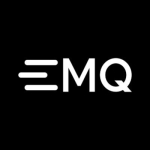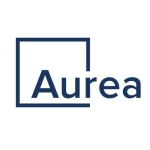Scalability and guaranteed delivery are the most valuable features. It's pretty straightforward to scale out. We use MQ to back our enterprise service bus. Guaranteed delivery is very important for most of the data that we send. Having a product that enables that is very valuable to us.
My organization has used MQ for a long time. It is a very scalable, common platform that we can use for sending messages. We use MQ in terms of messaging, MQTT, and MQ FTE for file transfers. It's versatile; it's very functional; and it provides us with a common messaging platform. It eases our integration.
With the introduction of MQ FTE, we've been moving away from other file transfer options, and standardizing the actual large file transfers with MQ FTE versus the previous product that we had. We've standardized on MQ FTE, in terms of shutting down basic transfers like FTP and other basic ways of transferring large files. Adding the MQ FTE functionality, on top of the MQ backbone, has been nice.
The product itself is not difficult to use. I guess you could always ask for a little bit better GUI admin console. All in all, it's not hard to use.
In a large organization like ours, sometimes we have a large MQ installation base; lots of connection points. If there was a more graphical representation, in terms of looking at the overall landscape of where we have MQ implemented, that you could drill in and out; that would be nice. A picture’s worth a thousand words, a lot of the time; if it was more graphical in terms of displaying the overall topology and layout of the MQ infrastructure we have; just from a high-level, admin-type view; just an easier way of looking at things.
It's very stable. It's been around forever. They have functions and features that are useful. Core-wise, it's a very stable product.
I'd probably recommend going with MQ. Don’t waste time with some of the other products out there. We constantly re-evaluate our portfolio and solutions; test things; and do comparative work. We've had other vendors come in, and we've run tests with them or even done limited deployments. Sometimes we buy a package and it comes with either Oracle's OSB, webMethods, or another integration platform, if you will, with their own version of their bus and messaging. Those mostly stay point-contained solutions, and that's for a reason. For the cost and everything you factor in, MQ is a pretty good product.
It's a great product. The only bad thing I could ever say about MQ is sometimes finding the right talent to administer it. It's a bit of a specialized skill set. Sometimes you can have challenges finding somebody that's really a competent admin. Other than that, it's a great product.
The most important criteria for me when selecting a vendor to work with depends on the product. The company's financial stability, their ability to scale to an organization of our size, is very important. Depending on the project, when you're reaching into new territory, sometimes it is looking at and evaluating who does have the best or most innovative approach to solving a problem.
We use MQTT, which is an open standard but works with MQ for the smaller messaging, for a lot of our messaging across the enterprise service bus that connects our digital or customer-facing activities back to our older, more legacy-based systems. It gives us a good interface.
We don't really have any barrier to success; we're pretty successful with it.















